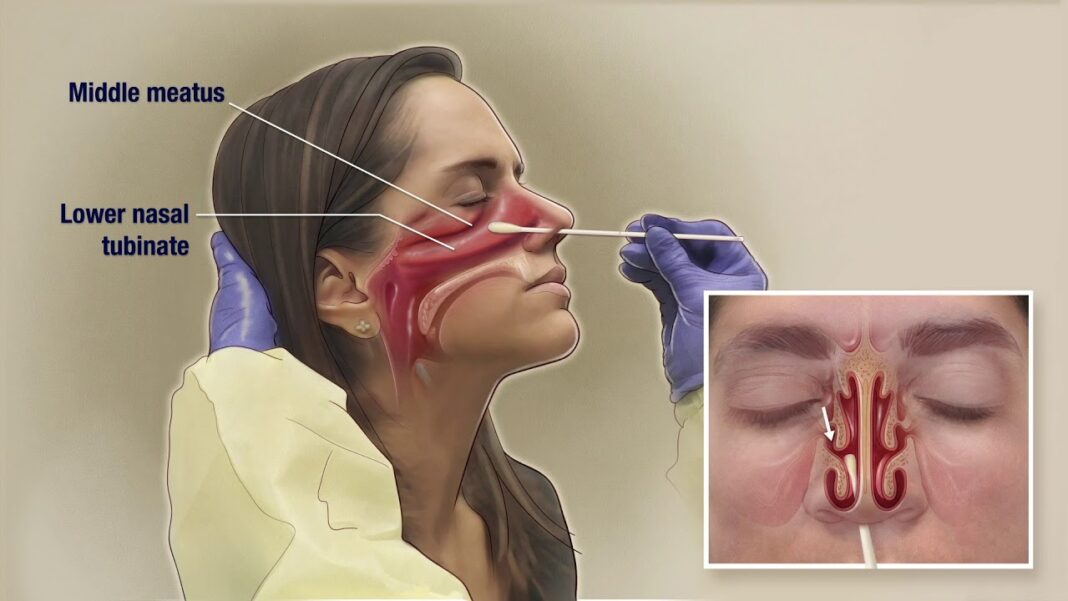
In a Feb. 16 tweet, the Centers for Disease Control and Prevention (CDC) said that a large percentage of nasal swab PCR tests for COVID-19 were ultimately subjected to genomic sequencing analysis, raising red flags among some people about the genetic privacy of individuals who took such tests.
Harvard professor Alberto Ascherio told Newsweek that those genomic sequencing analyses are of viral RNA, not human DNA, with the aim of tracking viral transmission as well as the emergence of new strains.
Yet, Ascherio acknowledged that human DNA could hypothetically be sequenced, as it is present on the swab as well—”which is probably what people may worry about if they are in [a] conspiracy mood.”
In a statement to The Epoch Times, a CDC spokesperson said only SARS-CoV-2 genetic sequences are analyzed for the swabs in question.
“A recent CDC tweet regarding genomic sequencing led some people to believe that personal identifying information was included in samples processed in the sequencing program,” the spokesperson said.
“That is not the case. Laboratories around the country examine viral sequences from positive samples which contain no personal identifying information. CDC analyzes SARS-CoV-2 genetic sequences from these labs to identify and compare variants, monitor their spread, and evaluate the potential impact on medical treatments and vaccines.”
The CDC’s comments come at a time of deepening wariness of pronouncements from public health authorities. A January 2022 survey from NBC News found that just 44 percent of Americans trust what the CDC has to say—a decrease from 69 percent in April 2020. While only 13 percent of Americans actively distrusted the CDC’s coronavirus messaging at that time, 43 percent actively distrusted it as of January 2022.
Trust in National Institute of Allergy and Infectious Diseases Director Anthony Fauci also fell during the same period, with the percentage of Americans who actively distrust his comments on COVID-19, the disease caused by the Chinese Communist Party (CCP) Virus, rising from 8 percent to 43 percent.
One factor in that distrust may be the dismissive attitude of public health experts regarding privacy. A few have argued publicly that falling trust in health agencies and growing resistance to data sharing actually justify the suspension of individual consent.








